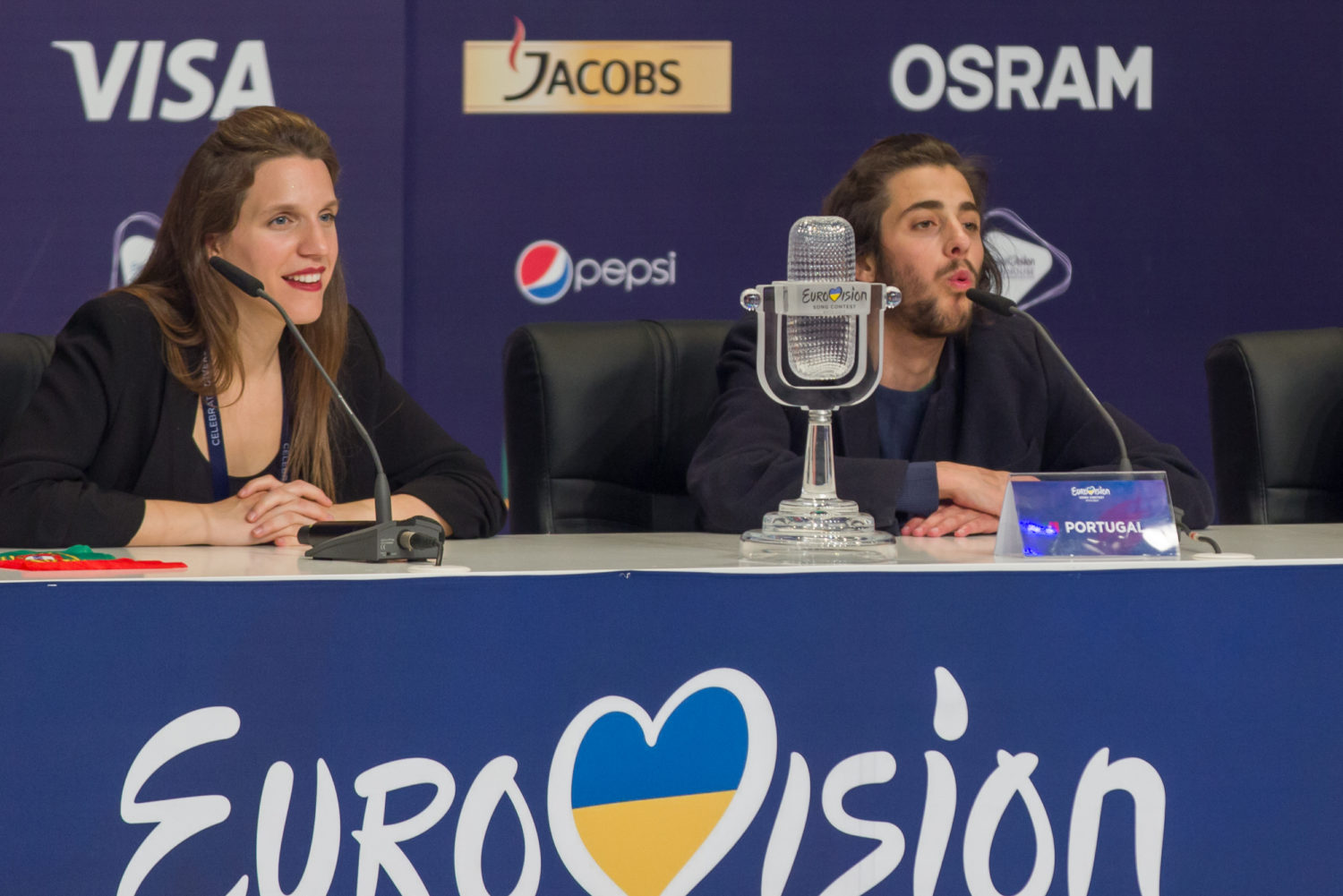In Portuguese, there’s a saying that goes like this: “Quem espera, sempre alcança”. Something like “who waits long enough will eventually get there”. Isn’t it just appropriate? After 49 attempts, Portugal did it and was finally crowned as the winner of the Eurovision Song Contest and no one was truly expecting it.
Everyone was hoping for it – making justice to what the green in our flag represents – but never really thought it’d happen.
Well, it did and the nationalism feeling took over the nation. In fact, Salvador Sobral’s win coincided with one of the biggest events of the country – Benfica’s victory party (the biggest football team in Portugal) – and even the festivities stopped to pay homage to Amar Pelos Dois. Now, that’s having an impact!
The day after the victory, Lisbon was filled with billboards congratulating Salvador and Luísa, the airport was invaded by thousands of people welcoming back the winners, every magazine would be covered by Salvador Sobral and every news channel would make the impossible to, at least, say the smallest thing about him. Let’s not talk about how every social media feed was flooded with him! But don’t let yourself be fooled by this Salvador phenomena.
Prior to this year, the last time portuguese people paid attention to Eurovision takes us all back to Vânia Fernandes’ Senhora Do Mar in 2008 – when there was a significant feeling of hope that it’d be our year. Following that, only Suzy managed to be newsworthy for the worst reasons. While most Eurovision fans enjoyed Quero Ser Tua, in Portugal, it only contributed for a greater disdain of the competition reinforcing the idea that the contest was filled with “fast-food music”, using Salvador Sobral’s own words. That’s exactly why I am advising you not to be fooled by all this event surrounding the victory. Not only the attention is more towards Salvador than the contest itself, but it will be ephemeral… Until the end of the next edition of the contest to be more precise.
In reality, Eurovision is no longer what it used to be in Portugal. The older generation (the main age group that watches the show) often remembers the times when the entire country would stop to see the competition. Nowadays, an average of 650,000 people – if RTP is lucky – will turn on to watch the final. On top of that, back then an artist would have a long lasting career after participating in Eurovision. Nowadays, they’ll be lucky to even be on the news after winning Festival da Canção. I’d dare to say that the youngest Portuguese generation had never heard of Eurovision up until this year – hopefully that’s a good sign for the future.
But that’s how everything goes. Everything has a peak, a stable period and a downfall to then rebound. Eurovision in Portugal has just rebounded but the downfall could’ve been avoided or at least could’ve been less deep. Older Eurovision acts agree and have no doubts when they say “Portugal (meaning RTP) never wanted to win”. Nucha (1990) and Carlos Mendes (1972) have both stated that.
“I remember vividly how every country was throwing parties and had billboards of their acts all over the city”, Nucha recalled a few years ago. “We – Portugal – were just there to see and eat. We weren’t there to win because it would cost too much to RTP.” Curiously enough, Carlos Mendes recalled something similar after Salvador’s victory: “In 1972, we didn’t win because RTP didn’t want to. I was called out for promoting my song way too much and was advised that if I won, it would be a major issue for the country due to the lack of conditions”.
This brings us back to the first paragraph of this article: “Portugal (…) was finally crowned as the winner (…) and no one was truly expecting it.” Not even RTP. In fact, after the very first meeting surrounding the 63rd edition of the Eurovision Song Contest, the possible price breakdown of approximately 50 million euros was all over the news and the main concern was on how to produce a low cost event.
Either way, this can only mean a better future for Eurovision’s reputation in the country. This victory was more than taking to the trophy home. This made everyone realize that the contest is not only about politics or about the biggest countries. It also isn’t just about pop music or what’s festive. It’s about delivering a good message, a good song, a good feeling and spreading love.
See you in Portugal next year!
This reflection article is based on the author's own personal experience. Views expressed belongs to him or her, and are to be seen as unrelated to EuroVisionary.com.
